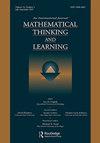Promoting spontaneous focusing on numerosity and cardinality-related skills at day care with one, two, how many and count, how many programs
IF 1.5
4区 教育学
Q2 EDUCATION & EDUCATIONAL RESEARCH
引用次数: 9
Abstract
ABSTRACT In this study we investigated the effects of two naturalistic 2- to 4-year-old children’s intervention programs aimed at promoting children’s Spontaneous Focusing On Numerosity (SFON) and early numerical skills. The study consisted of a quasi-experimental, pretest-posttest design with a delayed posttest and an active control group participating in the Let’s Read and Talk program. All conditions had 6 weeks of intensive training followed by a 4-month rehearsal phase, when intervention activities were integrated into normal day care. The results of both numerical interventions in the whole group level show positive, small- to medium-sized long-term effects on cardinality-related skills from pretest to delayed posttest. The SFON tendency increased more from pretest to posttest in both studies but the group differences vanished in the delayed posttest. The children in the Count, how many programs developed more in SFON tendency from pretest to posttest, while the better development of SFON from pretest to posttest was significant only for the low group in the One, two, how many programs. There were no group differences in vocabulary or story comprehension skills. Educational implications suggest that combining SFON and cardinality-related skill training at day care results in developmentally effective activities for early educators and children.在日托中心,通过一,二,多少,数,多少程序来促进自发关注数字和基数相关的技能
摘要在本研究中,我们调查了两个2至4岁儿童自然干预计划的效果,旨在促进儿童自发关注数字(SFON)和早期数字技能。这项研究包括一个准实验性的前测后测设计,其中包括一个延迟后测和一个参与Let's Read and Talk计划的主动对照组。所有条件都有6周的强化训练,然后是4个月的排练阶段,干预活动被纳入正常的日托。从前测到延迟后测,两种数值干预在整个组水平上的结果都显示出对基数相关技能的积极、中小型长期影响。在两项研究中,从前测到后测,SFON倾向增加得更多,但在延迟后测中,组间差异消失了。计数中的儿童,从前测到后测,有多少个项目的SFON倾向发展得更多,而从前测再到后测的SFON发展得更好,仅对一、二、多少个项目中的低组显著。在词汇或故事理解能力方面没有群体差异。教育意义表明,将SFON和日托中心的基数相关技能培训相结合,可以为早期教育工作者和儿童带来有效的发展活动。
本文章由计算机程序翻译,如有差异,请以英文原文为准。
求助全文
约1分钟内获得全文
求助全文
来源期刊

Mathematical Thinking and Learning
EDUCATION & EDUCATIONAL RESEARCH-
CiteScore
4.40
自引率
6.20%
发文量
18
 求助内容:
求助内容: 应助结果提醒方式:
应助结果提醒方式:


